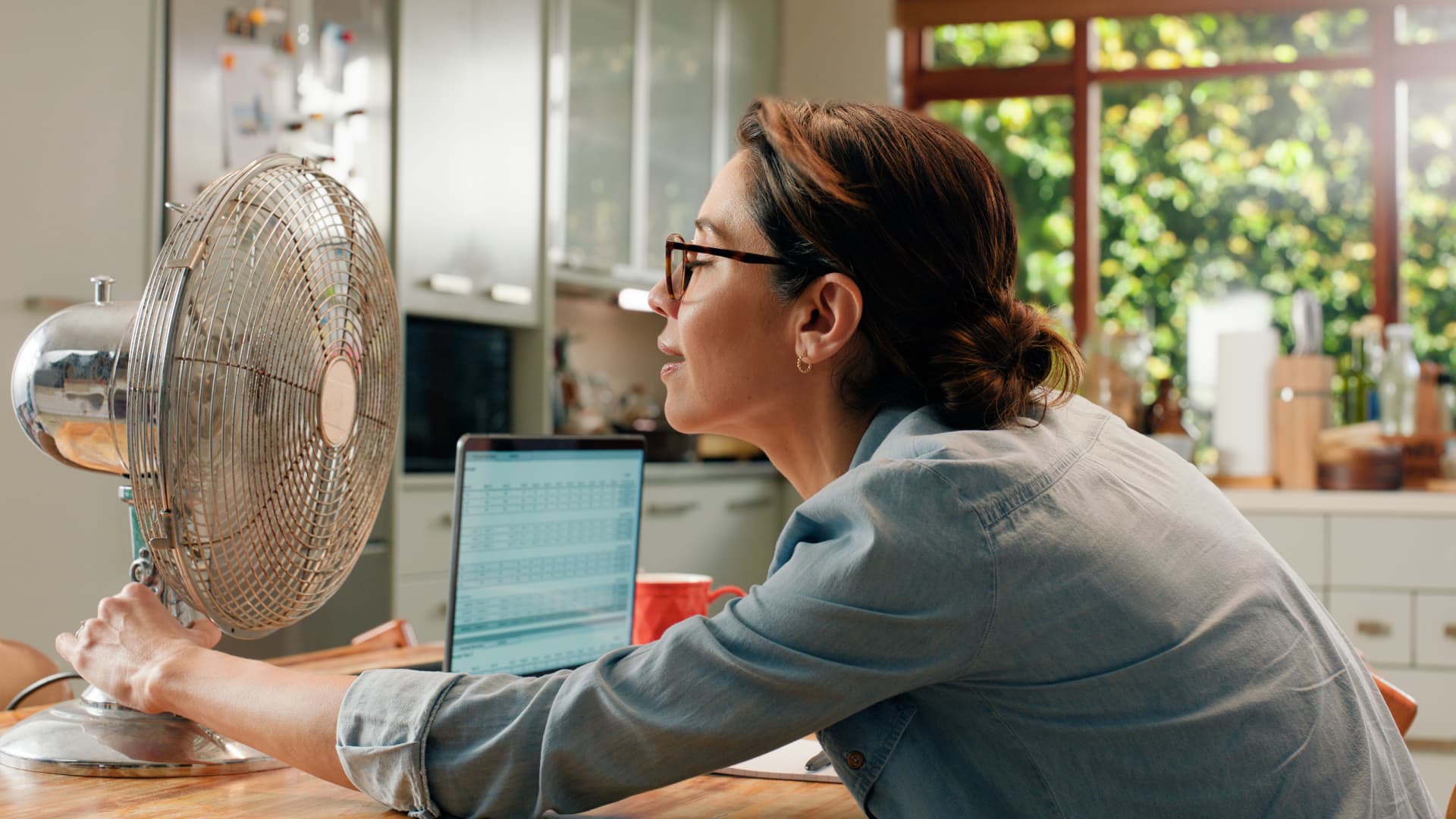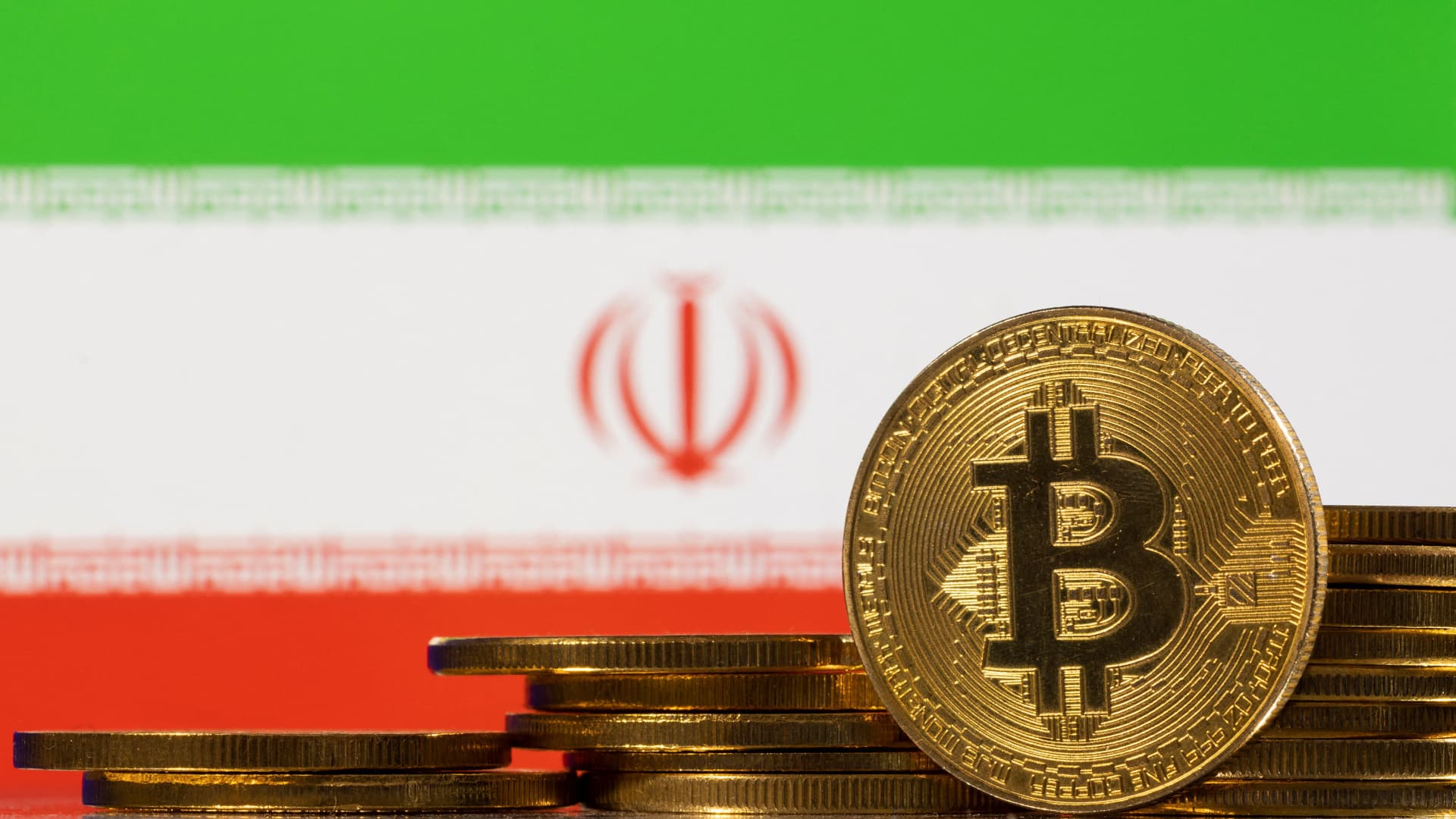New England residents are expected to face even higher charges, the Journal reports, with average monthly bills reaching around $200.
A higher-than-expected AC bill can sneak up on you. And while this summer’s 4% uptick may not seem significant in comparison to other prices on the rise, it can interfere with your plans to allocate your summer spending elsewhere.
Experts say there are ways to save while still staying cool this summer. Here are their top tips.
1. Seal windows and doors
To prevent leaks, Caballero suggests scanning your doors and windows to look for gaps and cracks where air could potentially get through — especially if you live in an older home.
Tapes designed to seal those leaks can be a quick, cost-effective solution, Caballero says.
For a more comprehensive fix, “the best thing” homeowners can do is pursue a professional home energy audit for a thorough assessment of cracks, gaps and leaks, says Matt Malinowski, building program director at the American Council for an Energy-Efficient Economy.
The price of an audit typically ranges from $300 to $500, but varies greatly depending on the size and location of your home as well as the type of test needed, Malinowski says. You may also be eligible for a $150 tax credit to help cover the costs, he added.
2. Use fans
Using a fan to make yourself feel cooler can allow you to reduce the temperature on your thermostat during peak hours of the day, Caballero says.
Fans don’t use as much electricity as an AC system, Caballero says, so you don’t need to worry that plugging one in will drive up your bill.
Malinowski adds that it’s important to remember “fans don’t cool space, they cool people,” so they should always be switched off when you leave a room.
3. Manage sunlight
Just like a car parked in the sun on a hot day, your home can heat up if you don’t close your blinds while you’re away, Malinowski says.
If you’re a homeowner with long-term environmental and budget sustainability goals, you may also want to consider planting trees that can provide natural shade and reduce heat, he adds.
4. Use heat-producing appliances wisely
Major appliances like your dryer, oven and dishwasher may produce more heat than you realize, Malinowski says, so it’s best to keep them off during the hottest hours of the day unless you want your AC to work overtime.
Instead, consider cost-effective methods that leverage the summer heat — like using a clothesline instead of the dryer, Malinowski says.
5. Prioritize regular maintenance
You can help your AC system work most optimally by changing the filter on it every one to three months, depending on the specific system’s needs, Caballero says.
“If you have a filter that is not clean it’s going to put a lot of stress on your system,” Caballero says, which means the AC will consume more energy and the system won’t last as long.
Adding a visit from a professional technician to your annual maintenance checklist can also help you address system issues preemptively, Caballero says, preventing major breakdowns.
6. Consider changing your system altogether
Smart thermostats can “do the work for you” by programming to turn on and off based on your schedule, Caballero says. If you have the option, you can purchase a smart thermostat for anywhere between $100 and $150, Malinowski says.
If you’re moving into a new home and shopping around for heating and cooling systems, Malinowski suggests heat pumps as an alternative to central AC systems.
Heat pumps “can run in both directions,” Malinowski says, providing you cooling in the summer and heating in the winter. Although they usually come with higher upfront costs than air conditioners, combining both your heating and cooling into one system can save you money long-term, he adds.
Heat pump systems are also more eco-friendly, Malinowski says, which can be a plus for those looking not only to save money, but also to live more sustainably.
Are you ready to buy a house? Take Smarter by CNBC Make It’s new online course How to Buy Your First Home. Expert instructors will help you weigh the cost of renting vs. buying, financially prepare, and confidently navigate every step of the process—from mortgage basics to closing the deal. Sign up today and use coupon code EARLYBIRD for an introductory discount of 30% off $97 (+taxes and fees) through July 15, 2025.
Plus, sign up for CNBC Make It’s newsletter to get tips and tricks for success at work, with money and in life, and request to join our exclusive community on LinkedIn to connect with experts and peers.

















Leave a Reply